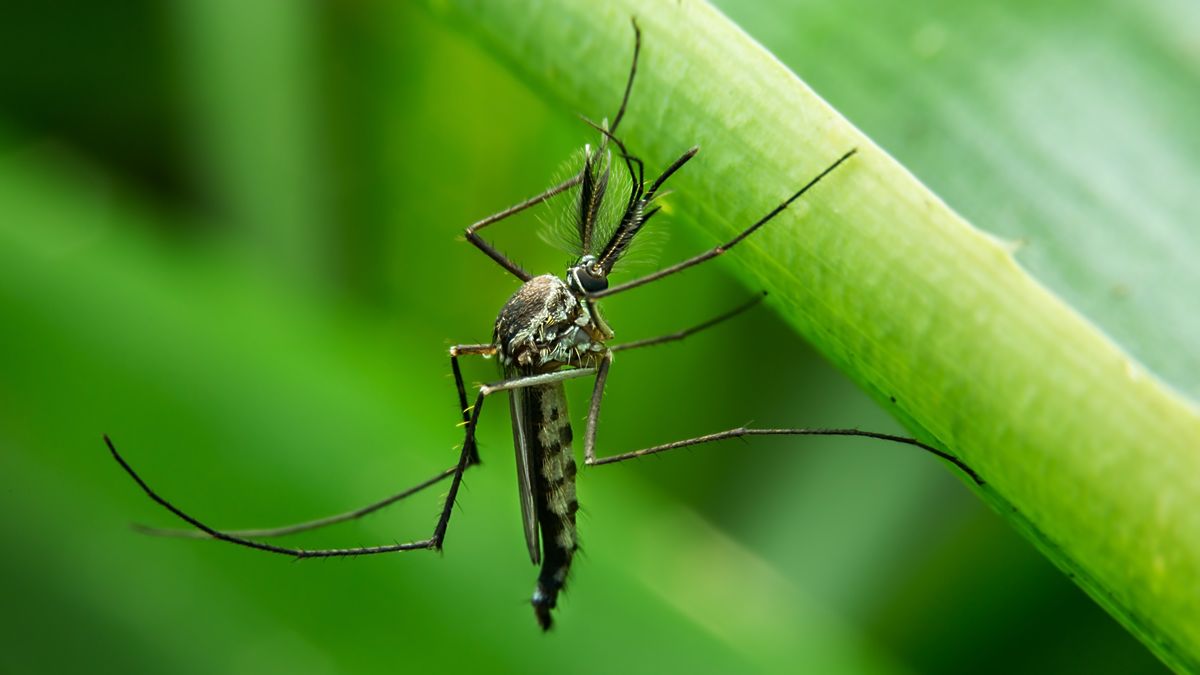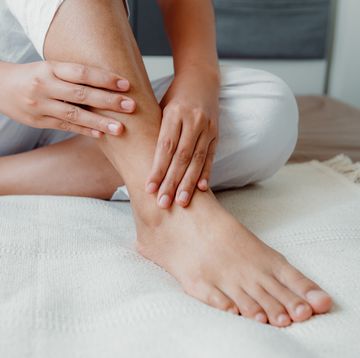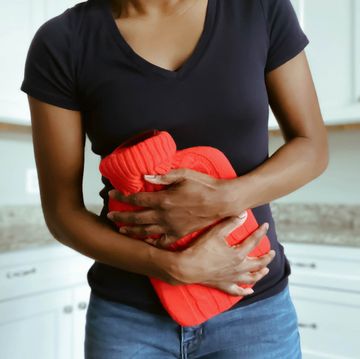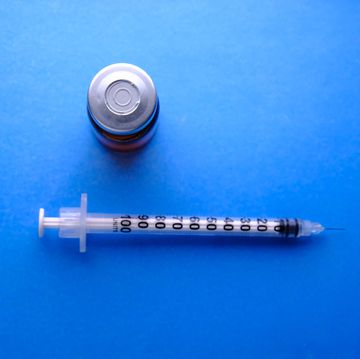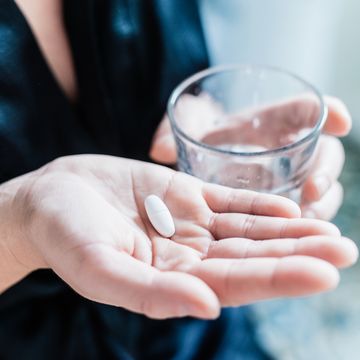Some people can sit outside in nice weather and have no issues with mosquitoes, while others are completely swarmed. People tend to joke about being a “mosquito magnet,” but new research shows this is an actual, legitimate thing.
The study, published in the journal Cell, followed eight people and asked them to wear nylon stocking on their forearms for six hours a day, and repeating this for several days. The researchers took those stockings and tested them against each other in a round-robin style tournament where Aedes Aegypti mosquitoes (which spread Zika virus, dengue, yellow fever, and chikungunya) were put into a chamber and allowed to choose which stocking they preferred.
Study participants were assigned a number and, by far, Subject 33 was the most attractive—four times more so than the next-most attractive study participant and a whopping 100 times more appealing than the least attractive participant, aka Subject 19.
“This suggests that skin odor is the primary driver of differential mosquito attraction to humans,” the researchers wrote.
If you fall into the mosquito magnet camp, you probably have questions—a lot of questions. Here’s what you need to know, plus what you can do to protect yourself going forward.
How do mosquitos find their prey?
Mosquitoes don’t blindly land on things and hope they can feed. They actually use a special receptor to find food, according to the National Institutes of Health (NIH). That receptor detects carbon dioxide, which you exhale, and skin odor.
Female mosquitoes have nerve cells called cpA neurons that have a receptor to detect carbon dioxide—and they can sense the plumes of air you exhale, the NIH says. Research has also found that they detect people by using chemosensory and thermal cues.
Mosquitoes also “use their vision” to find their next meal, says Eva Buckner, Ph.D., an assistant professor and medical entomology extension specialist at UF/IFAS Florida Medical Entomology Laboratory in Vero Beach. “Their vision is certainly not as sharp as ours, but they can differentiate between light and dark,” she says. “They’re generally going to be more attracted to dark colors.”
As for that odor you give off, it’s caused by the breakdown of bacteria on your skin, Buckner explains. “It’s part of your natural make-up, and different people have different bacteria make-up,” she says. Buckner says that this scent is “not necessarily an odor that you can detect.”
Finally, mosquitoes are a little picky about where they choose to bite you. Mosquitoes use “an internal taste organ and taste organs from its mouthparts and legs to detect the right place to bite,” says Thomas Dobrinska, board certified entomologist with Ehrlich Pest Control.
Worth pointing out, per the Centers for Disease Control and Prevention (CDC): Only female mosquitoes suck your blood—male mosquitoes just eat plant juices, like nectar.
Why are some people more attractive to mosquitoes than others?
Body odor seems to be a big factor. The researchers in this particular study found that people who are considered “highly attractive” to mosquitoes create “significantly more” carboxylic acids in their skin. (Carboxylic acids are organic compounds.)
Even “mutant” mosquitoes that didn’t have certain sensory receptors “retained the ability to differentiate highly and weakly attractive people,” the researchers wrote.
Your blood type may also play a role, with Dobrinska noting that certain blood types have found to be more attractive to mosquitoes than others. “Type O blood seems to be the most favored among certain mosquito species and in fact, these mosquitoes preferred Type O blood almost twice as much as Type A.”
Basically, if you’re a mosquito magnet, you’ll attract the pests to some degree no matter what.
What to do if you’re a mosquito magnet
It may feel like you’re totally screwed, but experts say you’re not—you just may need to take some extra precautions that people who are less attractive to mosquitoes don’t in order to minimize your risk of bites. According to the CDC, those include:
- Using insect repellent with DEET, picaridin, IR3535, oil of lemon eucalyptus, para-menthane-diol, or 2-undecanone.
- Wear long-sleeved shirts and long pants
- If you’re going into an area where mosquitoes are prevalent (like the woods), use 0.5% permethrin to treat clothing and gear, or buy permethrin-treated clothing and gear
- Use screens on windows and doors
- Use air conditioning, if you can
- Get rid of standing water around your home, like in buckets, toys, planters, flower pots, or trash containers
Another hack, per Buckner: Ditch the perfume. “Mosquitoes can be attracted to floral smells, like floral perfume,” she explains. “If you’re going to be in an area that will potentially have mosquitoes, don’t wear floral, smelly perfume.”
Cutting back on alcohol can also be helpful, Dobrinska says. “Drinking alcohol makes some people sweat more,” he explains. “Also, alcohol causes blood vessels to dilate which moves warm blood closer to the skin. The odor from the sweat, combined with increased heat from the skin, will increase attraction by mosquitoes.”
